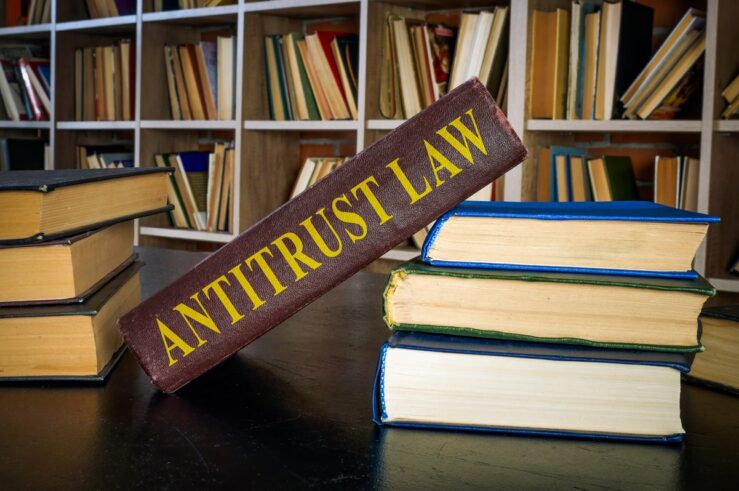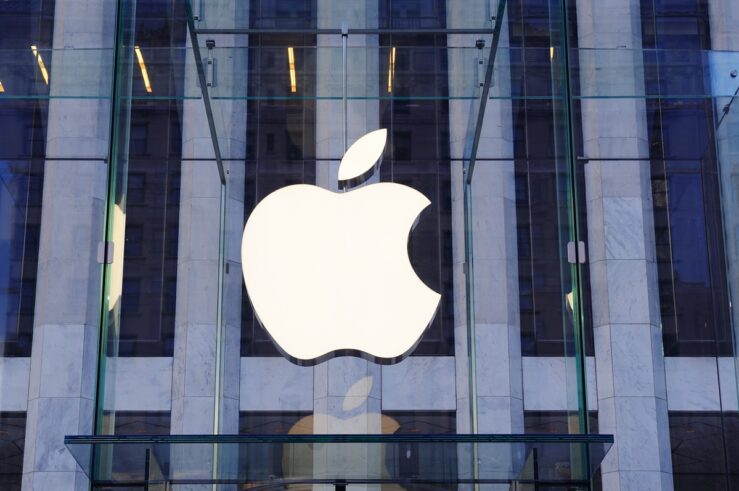Showing archive for: “Monopolization”
Some Thoughts on the Google Decision, for Those Who Haven’t ‘Binged’ It Yet
Readers of Truth on the Market are no doubt aware of Judge Amit Mehta’s Aug. 5 decision in the Google search antitrust case—that is, his 286-page memorandum and order finding Google liable for violating Section 2 of the Sherman Act (specifically, illegal monopoly maintenance in two markets: general search services and general text advertising). Comments ... Some Thoughts on the Google Decision, for Those Who Haven’t ‘Binged’ It Yet
Europe’s Latest Antitrust Policy Pronouncement Threatens Innovation
A newly released draft of the European Union’s proposed monopolization guidelines suggest they could pose a new threat to innovative business practices that promote high-tech economic growth. The EU should scrap the draft and U.S. antitrust enforcers should likewise reject its approach. Overregulation Harms EU Economic Growth and Innovation The United States, not Europe, has ... Europe’s Latest Antitrust Policy Pronouncement Threatens Innovation
Judge Mehta Got It Wrong in the Google Case
U.S. District Court Judge Amit Mehta ruled in an Aug. 5 order that Google violated antitrust law by improperly maintaining a monopoly. The case focused on “general search engines” (GSEs) used for internet search, and the impropriety was the manner through which Google secured distribution in partnering with internet-browser developers, mobile-device manufacturers, and wireless carriers. ... Judge Mehta Got It Wrong in the Google Case
The Waiting Game: Noncompetes, Google, Roll-Ups, and More
I’ll start with a bit of half-empty, half-full (and very partial) resolution in Federal Trade Commission (FTC) publicity. Losing by Winning or Just Losing or . . . ? A couple of weeks ago, the Wall Street Journal editorial board announced that: “Another Lina Khan Theory Loses in Court” And that was right, up to ... The Waiting Game: Noncompetes, Google, Roll-Ups, and More
Live Nation Breakup: Are Mergers Really to Blame for Ticketmaster’s Problems?
The U.S. Justice Department (DOJ) announced yesterday that it has filed suit, along with 29 states and the District of Columbia, charging Live Nation Entertainment Inc. and its subsidiary Ticketmaster LLC with monopolizing the live-events industry in violation of Section 2 of the Sherman Act. The suit, filed in the U.S. District Court for the ... Live Nation Breakup: Are Mergers Really to Blame for Ticketmaster’s Problems?
The FTC Office of Patent Invalidation
The Federal Trade Commission (FTC) announced late last month that it had “expanded its campaign against pharmaceutical manufacturers’ improper or inaccurate listing of patents in the Food and Drug Administration’s (FDA) Orange Book, disputing junk patent listings for diabetes, weight loss, asthma, and COPD drugs, including Novo Nordisk Inc.’s blockbuster weight-loss drug, Ozempic.” Warning letters ... The FTC Office of Patent Invalidation
The Silly Season in Antitrust: The Hermès Case
For six generations, Hermès has epitomized French luxury, making and selling its iconic scarves, belts, jewelry, and, of course, handbags. Some Hermès products, including its Birkin and Kelly bags, are so exclusive that they can’t be bought off the shelf. Customers first have to establish a relationship with the house to purchase these specialty bags. ... The Silly Season in Antitrust: The Hermès Case
DOJ’s Case Against Apple: Beware of Forcing ‘Efficiencies’
The U.S. Justice Department’s (DOJ) recent complaint charging Apple with monopolizing smartphone markets is, according to Assistant U.S. Attorney General Jonathan Kanter, intended as a contribution to the agency’s “enduring legacy of taking on the biggest and toughest monopolies in history.” Unfortunately, the case has fundamental weaknesses in its assessment of both Apple’s alleged monopoly ... DOJ’s Case Against Apple: Beware of Forcing ‘Efficiencies’
The Missing Element in the Google Case
Through laudable competition on the merits, Google achieved a usage share of nearly 90% in “general search services.” About a decade later, the government alleged that Google had maintained its dominant share through exclusionary practices violating Section 2 of the Sherman Antitrust Act. The case was tried in U.S. District Court in Washington, D.C. last ... The Missing Element in the Google Case
The View from Australia: A TOTM Q&A with Allan Fels
Allan, you have a remarkably high public profile in Australia and are known to most of the Australian population as ex-ACCC chair. Could you please give us a bit on your background and how you got into competition law? I did degrees in law and economics at the University of Western Australia and a PhD ... The View from Australia: A TOTM Q&A with Allan Fels
US v. Apple Lawsuit Has Big Implications for Competition and Innovation
The lawsuit filed yesterday by the U.S. Justice Department (DOJ) against Apple for monopolization of the U.S. smartphone market (joined by 15 states and the District of Columbia) has big implications for American competition and innovation. At the heart of the complaint is the DOJ’s assertion that: [Apple’s] anticompetitive acts include, but are not limited ... US v. Apple Lawsuit Has Big Implications for Competition and Innovation
Mi Mercado Es Su Mercado: The Flawed Competition Analysis of Mexico’s COFECE
Mexico’s Federal Economic Competition Commission (COFECE, after its Spanish acronym) has published the preliminary report it prepared following its investigation of competition in the retail electronic-commerce market (e.g., Amazon). The report finds that: there are elements to preliminarily determine that there are no conditions of effective competition in the Relevant Market of Sellers and in ... Mi Mercado Es Su Mercado: The Flawed Competition Analysis of Mexico’s COFECE
















